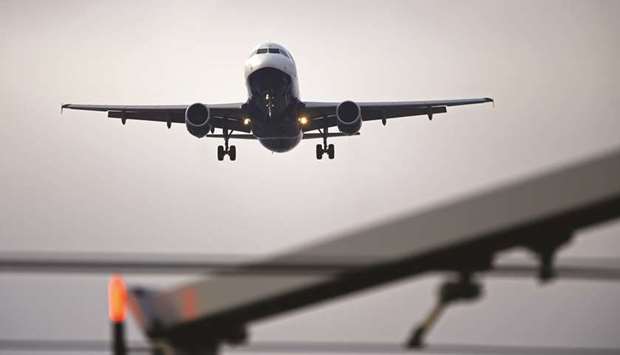A trade war is not good news for the global economy and certainly not for the air transport industry, which now sees a trans-Atlantic subsidy dispute between two key markets — the US and European Union, deepening.
The United States and Europe have been locked in a years-long spat over mutual claims of illegal aid to US planemaker Boeing and its European rival Airbus to help them gain advantage in the world jet business.
Disputed aviation subsidies have become the bone of contention between the two sides, threatening both air freight and passenger segments in the busy trans-Atlantic air corridor.
President Donald Trump’s recent threat to impose tariffs on $11bn worth of European Union products, including commercial aircraft, has apparently deepened a long-running trans-Atlantic subsidy row.
The European Union is preparing retaliatory tariffs against the US over subsidies to Chicago-based planemaker Boeing; significantly escalating transatlantic trade tensions, soon after Washington vowed to hit the EU with duties over its support for Airbus.
The two sets of punitive measures are the latest twists in a nearly 15-year-old dispute that the US and EU have fought at the World Trade Organisation (WTO), with each side accusing the other of illegally subsidising their main aircraft makers.
The long-running trans-Atlantic trade wrangle over Airbus and Boeing stretches back nearly 15 years. Claims and counter-claims over alleged illegal aid given to the plane giants have been brought to the WTO, and many analysts say, both sides were seen breaking the rules. The US and Europe are already in the middle of a tense trade dispute. President Trump has long accused the bloc of taking advantage of the United States economically, and he had previously imposed steel and aluminium tariffs on the EU (in May last year) — a move which greatly angered the US allies.
The Office of the US Trade Representative quoted by Bloomberg said that EU support for Airbus had caused “adverse effects” when announcing the new measures, which would target European goods including jetliners, cheese, wine and motorcycles.
The EU called the sum cited by the USTR “greatly exaggerated” and said preparations were underway to hit back. While the EU hasn’t disclosed the amount of American goods it would target, Airbus said the bloc would proceed with “far larger countermeasures” against the US.
The heightened tensions come as the 28-nation EU works toward approving a mandate for the European Commission, the bloc’s executive arm, to negotiate cuts in industrial tariffs with the Trump administration.
The new tensions may complicate those efforts, which are part of European attempts to ward off American threats of separate duties on foreign autos and car parts, Bloomberg said.
France’s finance minister Bruno Le Maire fears that an escalation in the subsidy row involving Airbus and Boeing, who now dominate the international market for passenger planes, will be senseless and serve only to benefit an emerging Chinese competitor. Commercial Aircraft Corporation of China or COMAC is leading China’s push to become a global civil aerospace player.
In November last year, the company and Russia’s United Aircraft Corp unveiled a life-sized model of a proposed widebody longhaul jet. In December 2018, COMAC’S C919 narrowbody passenger jet completed its first test flight, in hopes of eventually competing with Boeing’s 787 and Airbus’ A350 jets.
The global market for widebody jets is estimated to be worth $2.5tn over the next two decades, according to Boeing, with the fleet size more than doubling to 9,180 jets.
Widebodies account for around 20% of projected global jet deliveries over that period but almost 40% by value.
According to International Air Transport Association (IATA) Director General and CEO Alexandre de Juniac, the rising tide of global protectionism resulting in trade wars was throttling the air cargo industry.
“Nobody wins a trade war,” de Juniac said and noted “We all do better when borders are open to people and to trade.
“Governments need to realise the damage being done by protectionist measures,” De Juniac said and added, Cargo is in the doldrums” and that it was “difficult to see an early turnaround” due to a weakening of order books, falling consumer confidence and trade tensions affecting the industry.
Latin America was the only region in the world not to report a decrease in year-on-year air cargo demand growth, IATA’s latest data reveal.
The US and Europe have previously had periodic uneasy truces over the Airbus-Boeing issue.
With the WTO yet to make its final ruling on penalties, there is still an opportunity for the two sides to sit around the table, hammer out a solution, and ease the tension. And that will help the global air transport industry fly high.
*Pratap John is Business Editor at Gulf Times.

An airplane prepares to land at Cointrin airport in Geneva. A trade war is not good news for the global economy and certainly not for the air transport industry, which now sees a trans-Atlantic subsidy dispute between two key markets u2014 the US and European Union, deepening.

